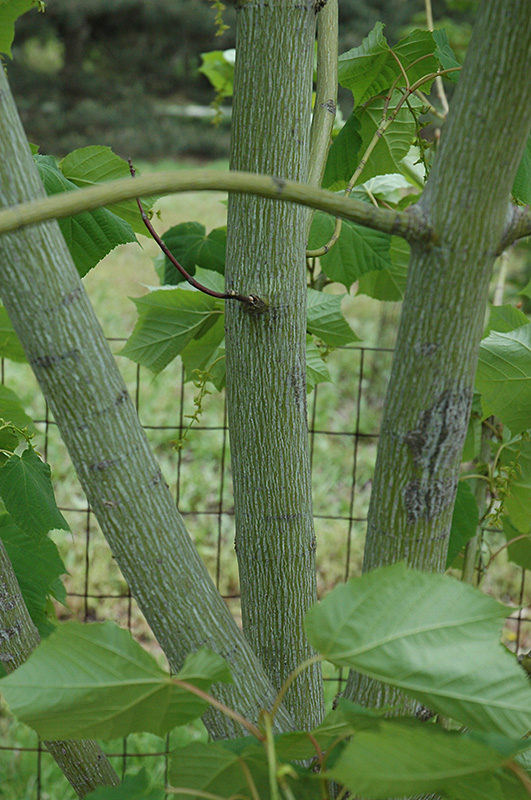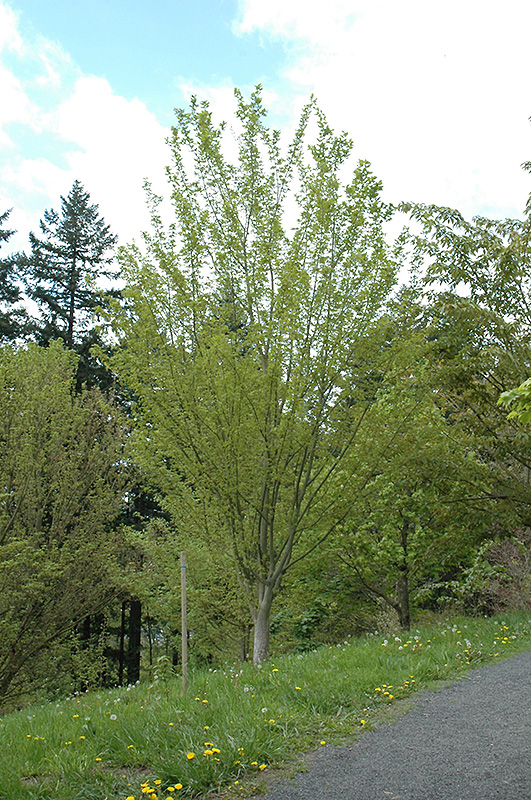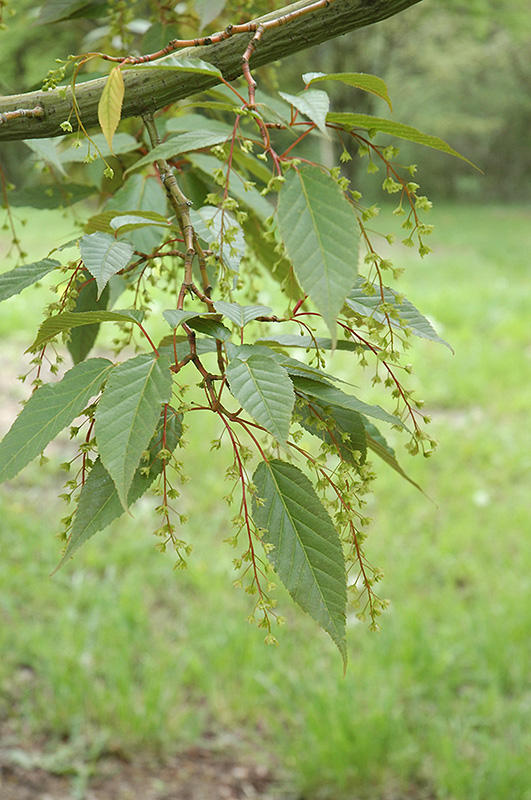Height: 30 feet
Spread: 18 feet
Sunlight:
![]()
![]()
Hardiness Zone: 4
Other Names: Manchurian Striped Maple
Description:
Extraordinary snake-like, fissured bark, bright green with bluish and silver striping; the bark of this tree will compliment nearby evergreens; lovely mahogany-colored buds all winter, attractive in every season
Ornamental Features
Snakebark Maple is covered in stunning racemes of yellow flowers along the branches in early spring. It has bluish-green foliage with dark green veins which emerges light green in spring. The serrated lobed leaves turn an outstanding gold in the fall. The smooth bluish-green bark and light green branches are extremely showy and add significant winter interest.
Landscape Attributes
Snakebark Maple is an open deciduous tree with a shapely oval form. Its average texture blends into the landscape, but can be balanced by one or two finer or coarser trees or shrubs for an effective composition.
This is a relatively low maintenance tree, and should only be pruned in summer after the leaves have fully developed, as it may 'bleed' sap if pruned in late winter or early spring. It has no significant negative characteristics.
Snakebark Maple is recommended for the following landscape applications;
- Accent
- Shade
Planting & Growing
Snakebark Maple will grow to be about 30 feet tall at maturity, with a spread of 18 feet. It has a low canopy with a typical clearance of 4 feet from the ground, and is suitable for planting under power lines. It grows at a medium rate, and under ideal conditions can be expected to live for 70 years or more.
This tree does best in full sun to partial shade. It does best in average to evenly moist conditions, but will not tolerate standing water. It may require supplemental watering during periods of drought or extended heat. It is not particular as to soil type or pH. It is quite intolerant of urban pollution, therefore inner city or urban streetside plantings are best avoided, and will benefit from being planted in a relatively sheltered location. Consider applying a thick mulch around the root zone over the growing season to conserve soil moisture. This species is not originally from North America.



